Natasha Chassagne
"My parents had a lot of similar values even though they’re from different circumstances. Things like conserving nature and not wasting anything. Their experiences have been part of what shaped me as a person."
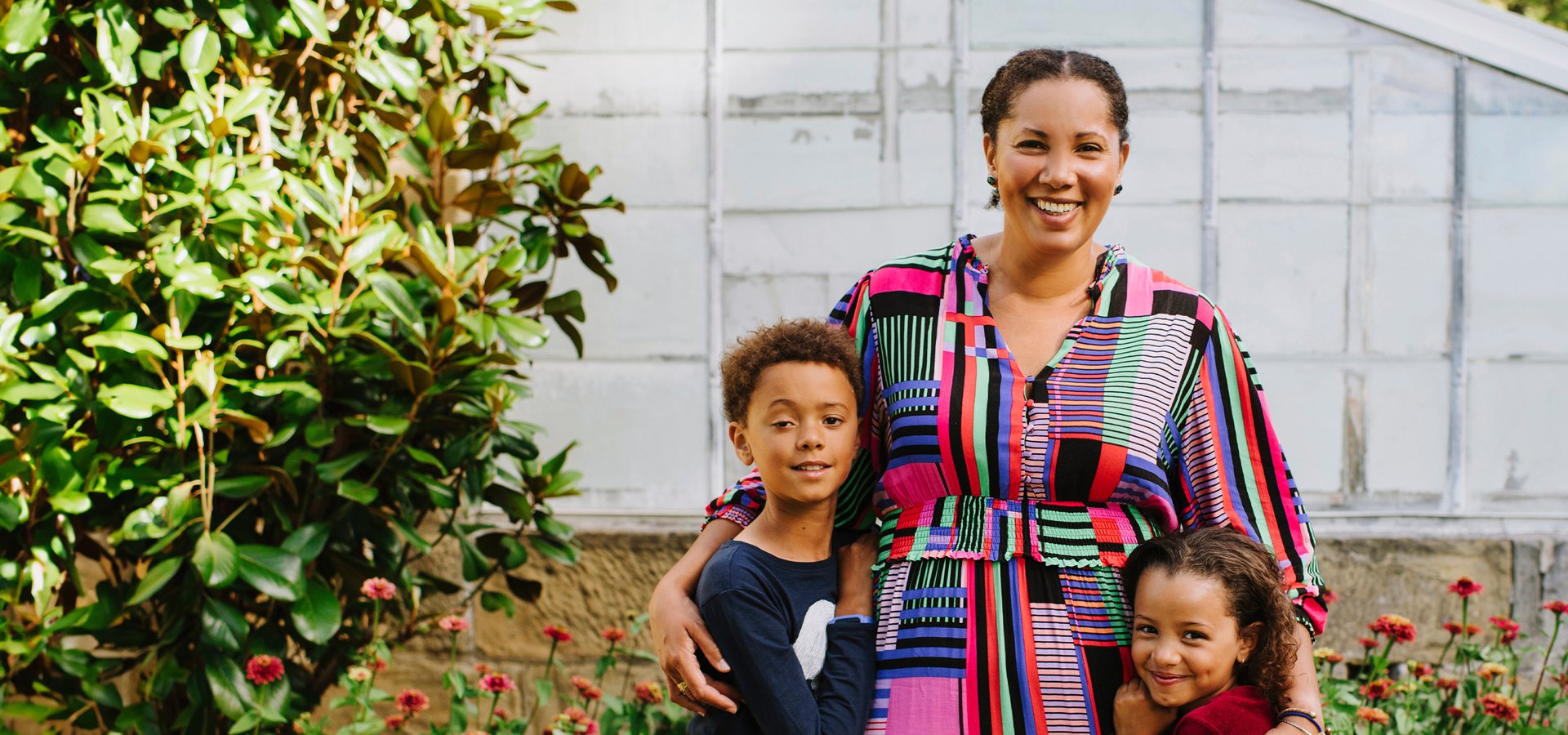
"I’m all or nothing; I can’t do something by half. When I’m with my kids, I’m with them. When I’m working, it’s head down bum up. I thought, 'If I’m going to have kids, if I’m going to bring life into this world, then they are my priority.'"
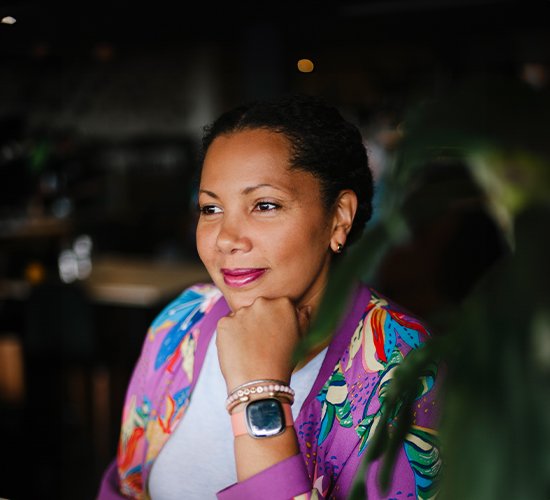
Near the banks of the Río Intag, in the tropical cloud forest of Ecuador, researcher Natasha Chassagne is visiting an organic farm.
The farmer explains to her how the farm works, and they walk together to the river. If the mine goes in as planned, the effluent will pollute the nearby farms that grow food for local communities. The farmer grabs a fistful of soil from the riverbed. It glints with flecks of gold ore. “Look at this gold,” he says. “We don’t want it. We don’t need it. We just want to leave it in the ground. It’s more valuable to have this clean, flowing river than to have the money from gold.”
It reminds Natasha of a far-away place. Not Adelaide, where she grew up, or Melbourne, where she was based before coming to Intag. “I made connections to where my dad grew up and where my grandma lives,” she recalls. “He comes from a valley in a mountainous region in Kenya, and it looks quite similar.” Natasha thinks of her grandmother, who Natasha visited when she was very young, and who lived in a traditional hut. “My dad, with good intentions, built her a brick house with running water. She refused to live in it. She would pump water from the well and carry it up. It really got me thinking: a lot of other people value their way of life a lot more than we do, and the connection to nature is so much more valuable to them than making money.”
This realisation reconnected Natasha to the most important lessons of her childhood. Her mum grew up in England in the post-war period and came to Australia as a “Ten Pound Pom”. Her dad grew up with no shoes to wear to school but went on to get scholarships to study in Russia, then Australia. Natasha and her four half-siblings grew up in a close-knit, working-class family. “My parents had a lot of similar values even though they’re from different circumstances,” Natasha explains. “Things like conserving nature and not wasting anything. Their experiences have been part of what shaped me as a person.”
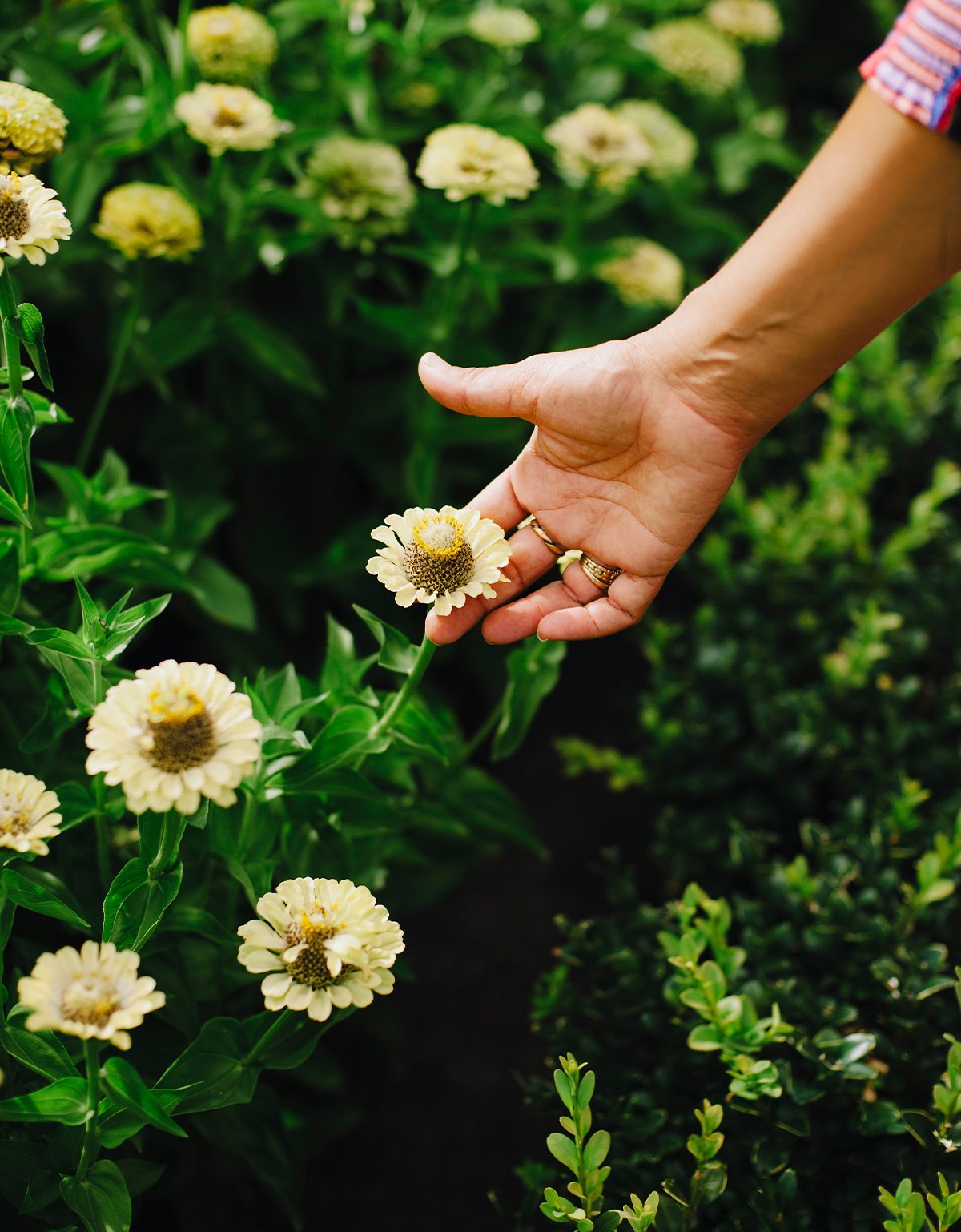
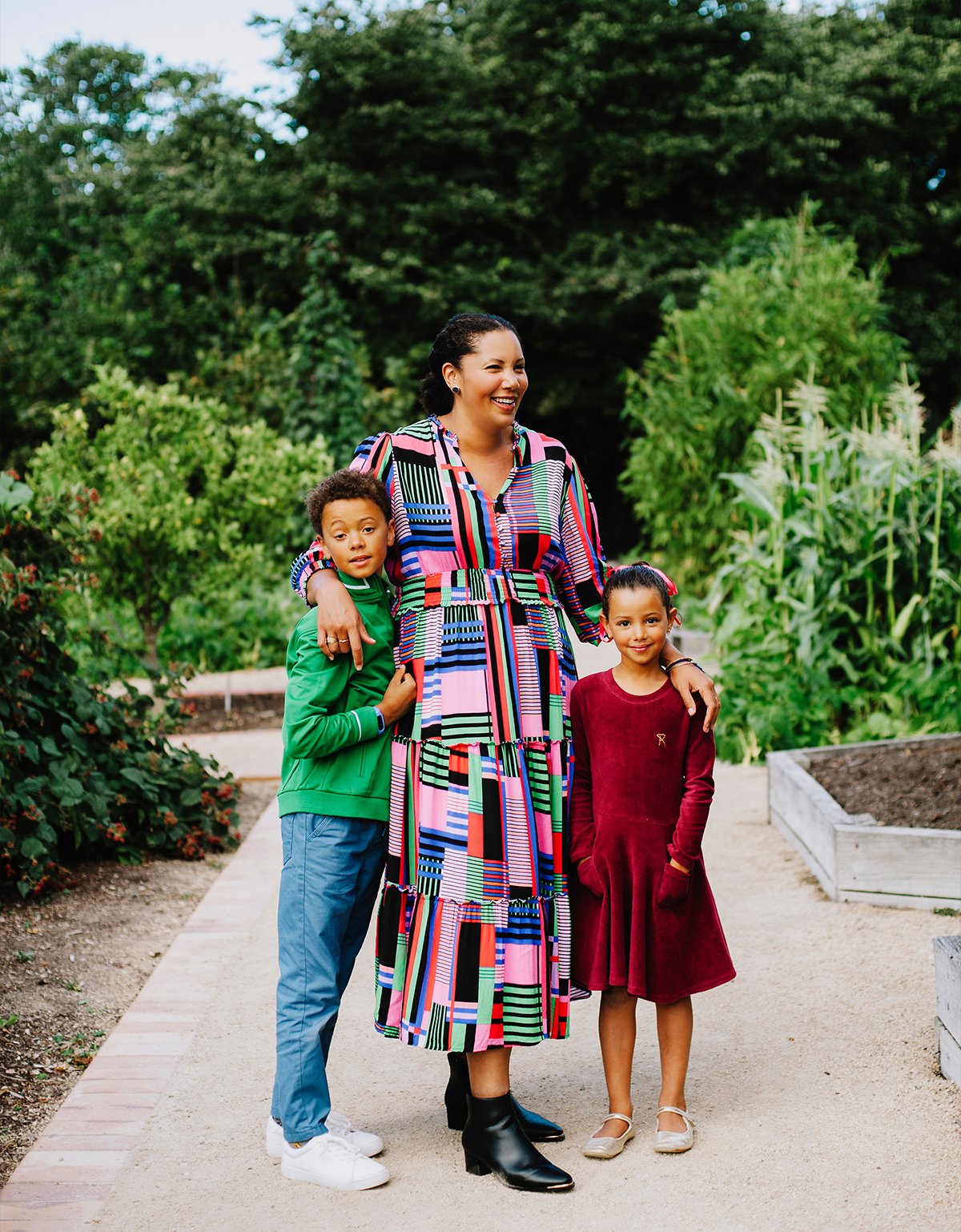
Natasha comes from a diverse family filled with different nationalities, with strong connections to the African community in Adelaide. Her dad had travelled all over. When she finished Year 12 at the age of 16, she began saving “with the intention to go overseas, nothing else.” Her first move was across the world to the UK. She returned to Australia to study a bachelor’s in international studies, then honours on human rights in France, then master’s degrees in international law and international relations. In between, she worked with the Korean and French Governments.
Natasha was driven to make the environment and her love of travel central to her life. It was after she met her husband, Antoine, that her environmental values turned into a career. They moved to Melbourne, where Natasha got her first job as a sustainability consultant. She was forced to confront some of the biggest challenges facing humanity. “I enjoyed the work and the challenge, one of the biggest being what sustainable development means.” Natasha worked with companies, governments, and NGOs. Some were genuine and invested, but not all. Some of the work didn’t sit right with her, and eventually she decided, “That’s it. I can’t do this anymore.”
Natasha and Antoine, a water engineer, wanted to travel again before they had kids, and they wanted it to matter. One of Natasha’s friends had done a PhD on “voluntourism” that made her question the ethics of volunteering overseas. When she looked into it herself, she found many programs meant that “you pay a lot of money to volunteer your time on projects imposed on communities.” Through their networks, they found someone who had been working in Ecuadorian local government, and before they knew it, they were in Intag. Natasha worked with the community to develop a sustainable tourism roadmap, and Antoine worked on improvements to water treatment.
“I was doing some interviews in the parish office when I came across this document: Buen Vivir,” Natasha recalls. Buen Vivir, or “good living” in Spanish, is a Latin American philosophy of living in harmony with nature. To Natasha, it seemed like everything the idea of sustainable development was missing. She had to learn more.
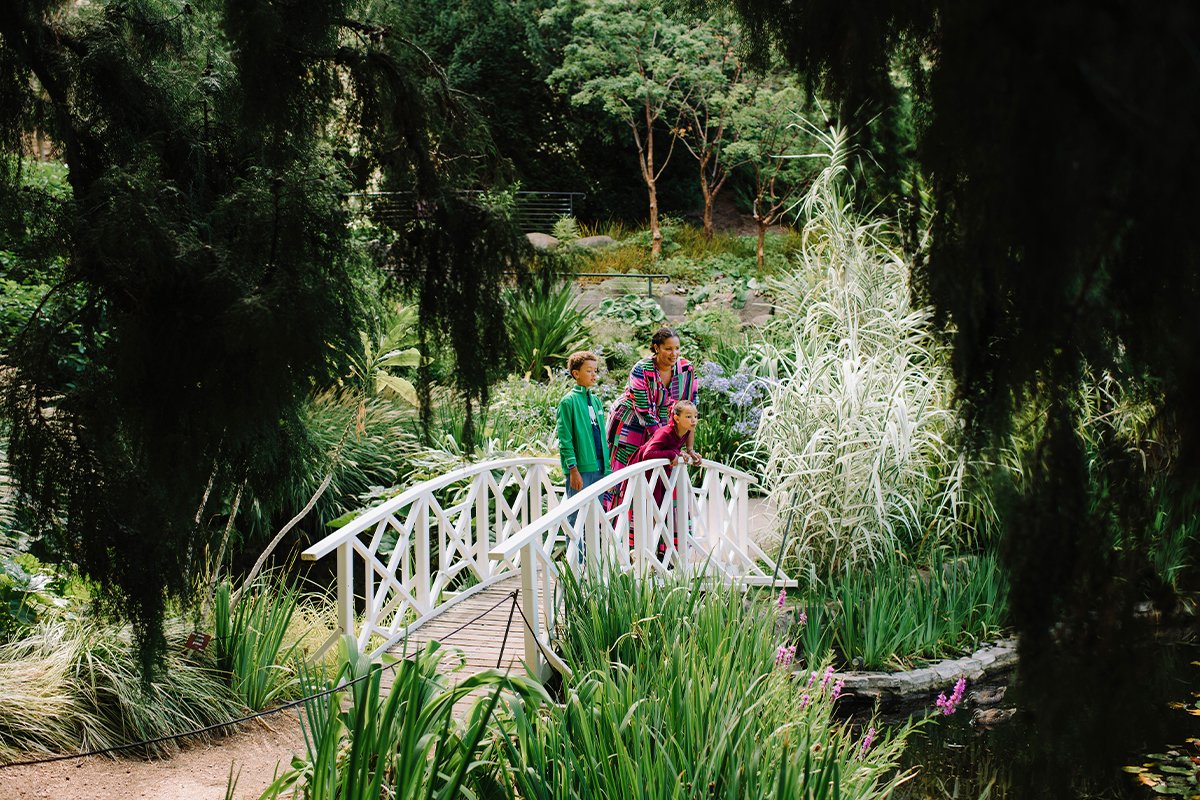
Natasha and Antoine returned to Australia at the peak of the Global Financial Crisis. They both struggled to find work until Antoine landed a job in what seemed, to them, an unlikely place: Tasmania. Natasha had never been to Tasmania and had no idea what it even looked like. “We came, and that drive from the airport down the highway, where you first see the mountain… My first impression was like, wow, it’s really beautiful.” They decided to give it a shot.
Creating a home in Tasmania was not easy. Natasha missed the easy connections to other people and places, and the cultural diversity of the other places she had lived. “I was the only kid in my school with curly hair and brown skin, besides a few Aboriginal kids, who came from a different culture. When I was a teenager, I felt it when I started wearing makeup and couldn’t find it in my shade. But no one was ever nasty about it. I had never encountered what I would take onboard as racism.” Some of Natasha’s early experiences in Tasmania were some of the most difficult she’d faced. Recalling them still brings tears to her eyes.
A very Tasmanian chance encounter in a Hobart coffee shop led Natasha to a University of Tasmania academic with expertise in Latin American Studies. Even though she felt in a place far away from her ambitions, she began her PhD, taking her deeper into the world of Buen Vivir at the same time as she entered the world of parenting. “I wouldn’t say I had the luxury of time, doing a PhD and having two kids in the middle. But I’m all or nothing; I can’t do something by half. When I’m with my kids, I’m with them. When I’m working, it’s head down bum up. I thought, “If I’m going to have kids, if I’m going to bring life into this world, then they are my priority.”
Having a childcare centre next to the uni meant she could both research and breastfeed her son, allowing her to parent and work on her project. When Natasha returned to the banks of the Río Intag, to learn from the organic farmer and many others, it was with her new son and her husband. “My son was in his element, being in nature every day. I think it formed a lot of his personality, being in this place that was just magnificent.” She struggled with sleep deprivation and missed being able to do long stretches of focused work. But with deep dedication and some help along the way, she completed her PhD on time and published a book from her findings.


It took a long time to find community here. But when you do find community, it’s really strong.
Natasha began her post-PhD life in Tasmania feeling unsettled by what she’d learned. How could Western society rely so heavily on fossil fuels and take nature so much for granted? Natasha has worked hard to make sense of these contradictions and instil environmental values in her children. “It’s really hard, because they’re little kids growing up in Western society with Western values. We start from simple – make sure to turn off the lights so we don’t waste energy – to the bigger idea of if you look after nature, it will look after you.”
In Natasha’s experience, Tasmania has started to change. “It’s not the same place as when we arrived here,” she says. “It’s less insular, and in my kids’ school there are African, Indian, Italian, Brazilian, and Spanish families. It’s diverse for here. But there is a common theme that’s really stuck with me, that it can take 20 years to feel like you belong here.” For Natasha, every place has a personality, and “you either get along with it, or you don’t, and your identity is built around this personality in some ways.” The part of her personality connected to nature loves it here, for herself and her children: the closeness to nature, the short commute, and the chance of a liveable climate under global warming.
Life beyond the islands will always call to Natasha, and she dreams that her children will be able to follow their ambitions anywhere. But for now, Tasmania is home. “It took a long time to find community here,” she reflects. “But when you do find community, it’s really strong. When you have children – our neighbours are the most amazing people, and they’re all Tasmanian.”
We worked with southern Tasmanian photographer Lisa Kuilenburg for this Tasmanian story.